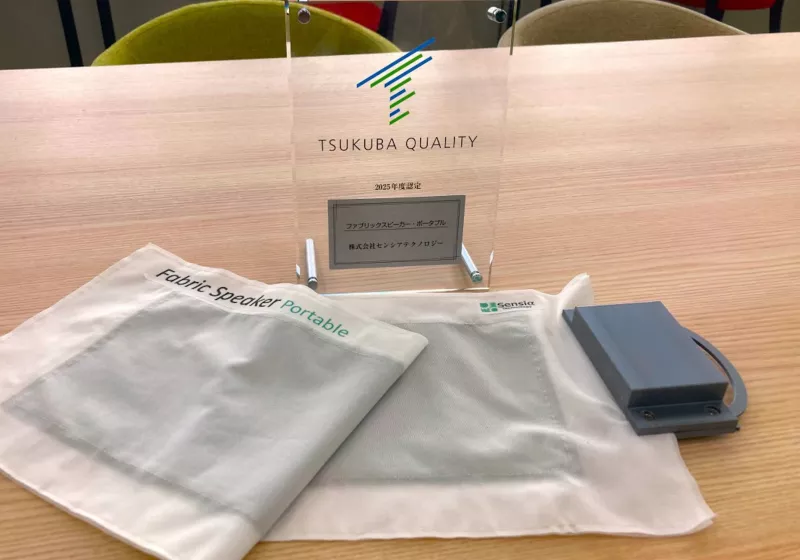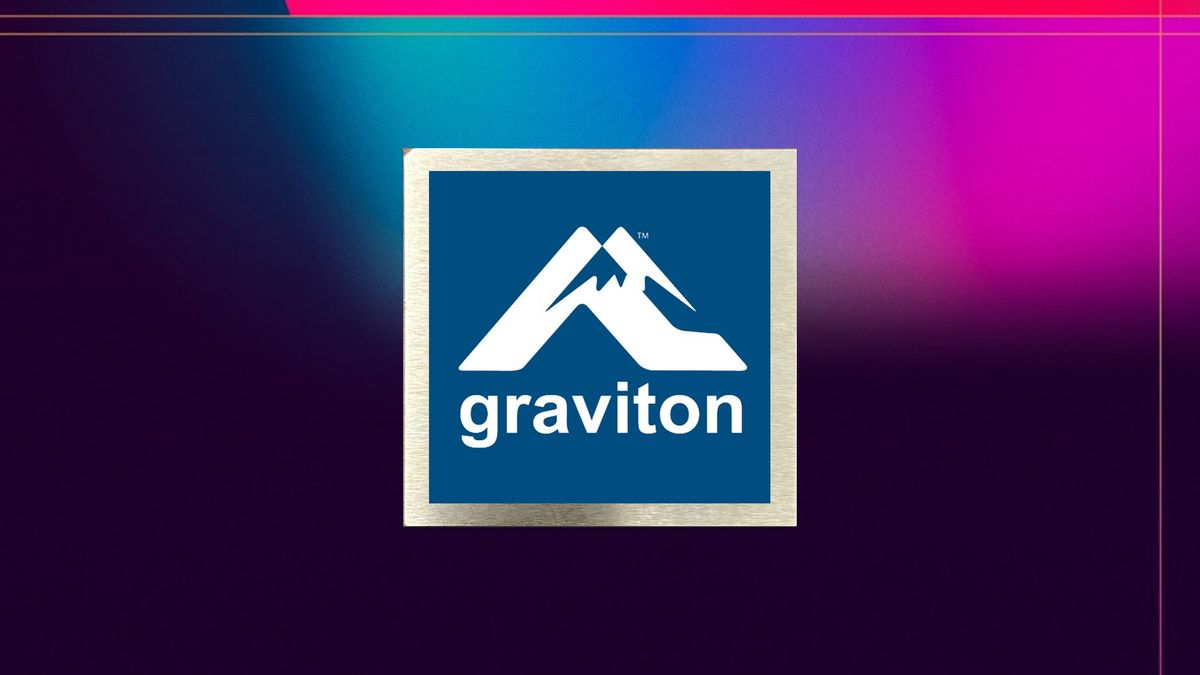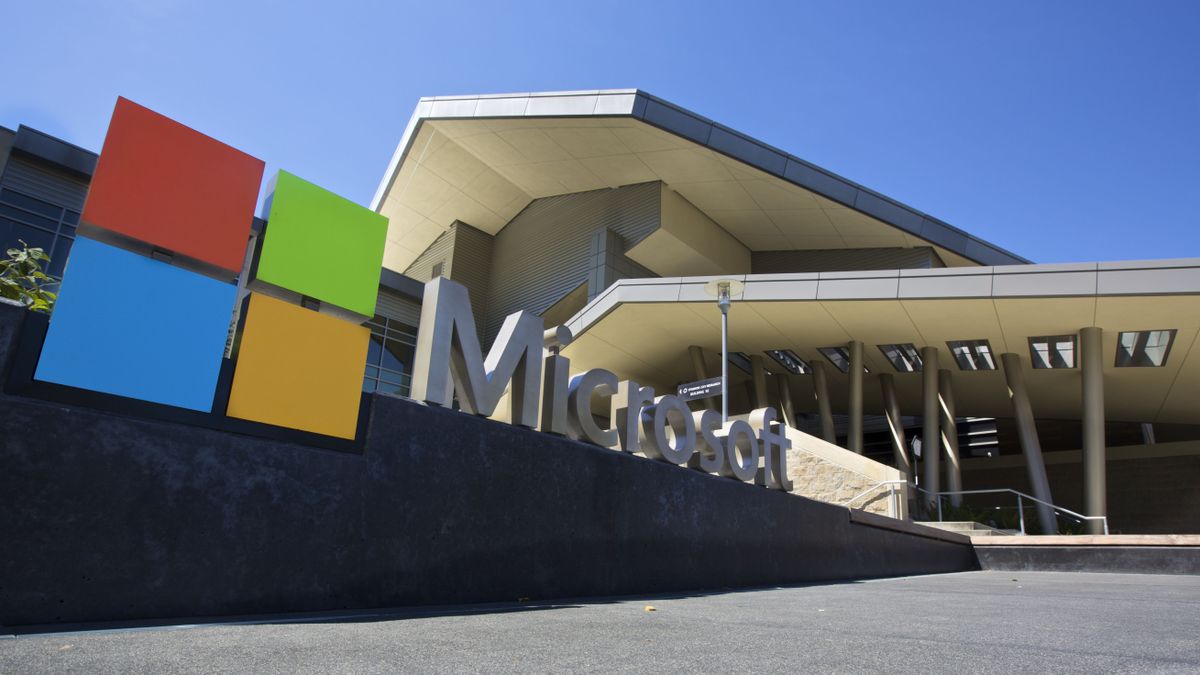In a private group chat in June, dozens of Democratic political influencers discussed whether to take advantage of an enticing opportunity. They were being offered $8,000 per month to take part in a secretive program aimed at bolstering Democratic messaging on the internet.
But the contract sent to them from Chorus, the nonprofit arm of a liberal influencer marketing platform, came with some strings. Among other issues, it mandated extensive secrecy about disclosing their payments and had restrictions on what sort of political content the creators could produce.
In their group chat, influencers debated the details.
“Should we send a joint email (with all of our email addresses) … or, are we just going to send things separately and hope they change everything for everyone?” Laurenzo, a nonbinary creator in Columbus, Ohio, with over 884,000 TikTok followers, asked the group. Some joked about collective bargaining. “Any Newsies fans here?” Eliza Orlins, a public defender and reality TV star known for her appearances on Survivor, posted in the group. “‘We’re a union just by sayin’ so!’”
The influencers in the chat collectively had at least 13 million followers across social platforms. They represented some of the most well-known voices online posting in support of Democrats, and they’re key to wherever the party moves next. But ultimately, the group didn’t make much progress.
“Reading through this revised Chorus contract like: you win some, you lose some,” a reproductive justice influencer named Pari, who posts under the handle @womeninamerica, responded later in the thread. “I also think there’s at least 4 other things that should change 🤣but the vibe I got from their email was that there would be minimal, if any, changes.” (Laurenzo, Orlins, and Pari did not reply to requests for comment.)
“I don’t feel strongly about pushing tbh,” Aaron Parnas, a Gen Z news influencer who has been called the Gen Z Walter Cronkite and has been lauded in legacy media outlets, posted to the chat. “They aren’t going to modify it anymore. Seems like a take it or leave it.” (Parnas declined to comment.)
“I believe we are in Stage 5: Acceptance,” Pari responded. Creators began signing on to the deal.
For years, Democrats have struggled to work with influencers. In 2024, President Joe Biden’s White House snubbed several prominent content creators after they lightly criticized the administration over its policies on climate change, Covid, Gaza, and the TikTok ban. Content creators who challenged Kamala Harris—including Hasan Piker, a well-known influencer on the left—were similarly unwelcome at campaign events.
After the Democrats lost in November, they faced a reckoning. It was clear that the party had failed to successfully navigate the new media landscape. While Republicans spent decades building a powerful and robust independent media infrastructure, maximizing controversy to drive attention and maintaining tight relationships with creators despite their small disagreements with Trump, the Democrats have largely relied on outdated strategies and traditional media to get their message out.
Now, Democrats hope that the secretive Chorus Creator Incubator Program, funded by a powerful liberal dark money group called The Sixteen Thirty Fund, might tip the scales. The program kicked off last month, and creators involved were told by Chorus that over 90 influencers were set to take part. Creators told WIRED that the contract stipulated they’d be kicked out and essentially cut off financially if they even so much as acknowledged that they were part of the program. Some creators also raised concerns about a slew of restrictive clauses in the contract.
Influencers included in communication about the program, and in some cases an onboarding session for those receiving payments from The Sixteen Thirty Fund, include Olivia Julianna, the centrist Gen Z influencer who spoke at the 2024 Democratic National Convention; Loren Piretra, a former Playboy executive turned political influencer who hosts a podcast for Occupy Democrats; Barrett Adair, a content creator who runs an American Girl Doll–themed pro-DNC meme account; Suzanne Lambert, who has called herself a “Regina George liberal;” Arielle Fodor, an education creator with 1.4 million followers on TikTok; Sander Jennings, a former TLC reality star and older brother of trans influencer Jazz Jennings; David Pakman, who hosts an independent progressive show on YouTube covering news and politics; Leigh McGowan, who goes by the online moniker “Politics Girl”; and dozens of others. (The first two declined to comment; the rest did not respond to requests for comment.)
According to copies of the contract viewed by WIRED that creators signed, the influencers are not allowed to disclose their relationship with Chorus or The Sixteen Thirty Fund—or functionally, that they’re being paid at all.
Dozens of liberal influencers are believed to have been approached by Chorus about The Sixteen Thirty Fund financing opportunity this spring. They were told that Chorus appreciated the work they were doing online and were asked if they’d be interested in being part of the first cohort of a new program that Chorus was running to help “expand their reach and impact,” creators tell WIRED.
But following the initial outreach, many creators expressed concern about some stipulations. According to copies of the contract viewed by WIRED, creators in the program must funnel all bookings with lawmakers and political leaders through Chorus. Creators also have to loop Chorus in on any independently organized engagements with government officials or political leaders.
“If I want to work with another politician, I have to fully collaborate with them,” said one creator who was offered the contract but ultimately declined to take it and asked not to be named. “If I get Zohran and he wants to [do an] interview with me, I don’t want to give that to them.”
Creators in the program are not allowed to use any funds or resources that they receive as part of the program to make content that supports or opposes any political candidate or campaign without express authorization from Chorus in advance and in writing, per the contract.
The contracts reviewed by WIRED prohibit standard partnership disclosures, declaring that creators will “not publicize” their relationship with Chorus or tell others that they’re members of the program “without Chorus’s prior express consent.” They also forbid creators from “disclos[ing] the identity of any Funder” and give Chorus the ability to force creators to remove or correct content based solely on the organization’s discretion if that content was made at a Chorus-organized event.
“There are some real great advantages to … housing this program in a nonprofit,” Graham Wilson, a lawyer working with Chorus, said to creators on a Zoom call reviewed by WIRED. “It gives us the ability to raise money from donors. It also, with this structure, it avoids a lot of the public disclosure or public disclaimers—you know, ‘Paid for by blah blah blah blah’—that you see on political ads. We don’t need to deal with any of that. Your names aren’t showing up on, like, reports filed with the FEC.” (Wilson did not reply to a request for comment.)
The Federal Election Commission declined to comment.
The goal of Chorus, according to a fundraising deck obtained by WIRED, is to “build new infrastructure to fund independent progressive voices online at scale.” The creators who joined the incubator are expected to attend regular advocacy trainings and daily messaging check-ins. Those messaging check-ins are led by Cohen on “rapid response days.” The creators also have to attend at least two Chorus “newsroom” events per month, which are events Chorus plans, often with lawmakers.
Elizabeth Dubois, an assistant professor and university research chair in politics, communication, and technology at the University of Ottawa who has researched the ways influencers are reshaping the US political system, says that “we are seeing influencers being pulled into these dark campaigns or shadow campaigns, where the legal aspect is murky at best.”
“Sometimes it is actually clear that influencers are being used to, for example, evade spending limits,” she says. “I think that we need to remember that for democracy to thrive, we do need transparency around who is paying for political messages.”
Don Heider, the chief executive of the Markkula Center for Applied Ethics at Santa Clara University, says that the outlined restrictions violate ethical norms. “If the contract for getting money from a particular interest group says you can’t disclose it, then it’s pretty simple, you can’t take the money,” he says. “We’re living in an era where a lot of powerful people have basically taken the rule book and thrown it out the window.”
Keith Edwards, a Democratic content creator who has skyrocketed to fame on YouTube since starting his channel last year, was not invited to be part of the program but believes that the way it was structured seemed “predatory.” He says that he would never agree to take part in a program that was run in secret or wouldn’t allow him to disclose funding.
“What I don’t understand is, why wouldn’t you just donate to creators directly who have already built something and just need to put gasoline on the fire?” says Edwards. “Democrats at least understand that the internet exists now, so that’s good. But they still think influencers are just there to do a terrible direct-to-camera interview that no one watches rather than just treating us like another form of media.”
The influencers offered the funding were given just days to sign the contract, which was essentially presented on a take-it-or-leave-it basis. At least one cohort was specifically told they could not have their lawyers redline it. In the group chat formed to discuss contract negotiations, some creators discussed a clause prohibiting the disparagement of other creators. Not being able to criticize anyone else affiliated with Chorus felt restrictive to some, according to text messages posted to the chat.
Eventually, the creators in the group chat agreed to drop the issues they had. “I don’t think [Chorus is] out to screw us,” Orlins, a creator who was offered $8,000 per month, said in the group chat. (Some influencers for Chorus Creator Incubator Program were offered as little as $250 per month, according to one creator who declined to accept the deal, while others were offered membership into the “amplifier” cohort, which provides up to $8,000 per month.)
The Sixteen Thirty Fund has emerged as a powerful funder in Democratic spaces in recent years. Its website notes that issues supported by the organization include economic equity, affordable health care, climate solutions, racial justice, voter access, and other “essential social-change goals.” The organization was founded in 2009 as a liberal response to conservative dark money groups and organizations like the Koch network, and under Trump it has soared.
In 2018, The Sixteen Thirty Fund provided $141 million to more than 100 left-leaning causes in order to bolster Democratic support during the midterms, according to a tax filing obtained by Politico. In 2020, the fund distributed more than $400 million, according to the organization’s public tax filing, which Politico said was used in “efforts to unseat then-president Donald Trump and Republicans’ Senate majority.” In 2022, The Sixteen Thirty Fund spent $196 million backing state ballot measures on abortion rights heading into the midterms, according to NBC. Just four donors accounted for close to two-thirds of the fund’s revenue in 2023, according to its tax filing. The largest donor gave the group $50.5 million, with others donating $31.4 million, $21.8 million, and $13.6 million.
“The Sixteen Thirty Fund, which is not required to disclose its contributors, has for years been a major funding source for liberal and progressive causes and groups, including those that spend in elections,” says Walker Davis, a research director for the open-government group Citizens for Responsibility and Ethics in Washington. “Though their recent tax returns indicate that they have pulled back from the eye-popping sums they raised and spent in 2020, the organization is still one of the top-spending politically oriented nonprofits in the country.”
Chorus, which is described in contracts reviewed by WIRED as a “project of” The Sixteen Thirty Fund that handles operations for the creator program, launched in November 2024 as a nonprofit arm of Good Influence, a for-profit influencer marketing agency aimed at helping content creators connect with social-good campaigns. Good Influence was founded in October 2020 by Stuart Perelmuter, the former communications director for representative John Yarmuth of Kentucky. Seeing an opportunity after Kamala Harris’ loss last November, Perelmuter cofounded Chorus with Democratic influencer Brian Tyler Cohen, who has over 4.6 million subscribers on YouTube and leads messaging check-ins for the creator cohort on “rapid response days.” According to records reviewed by WIRED, Chorus claims that its initial creator cohort has a collective audience of more than 40 million followers with more than 100 million weekly viewers and that the organization has “hundreds of creators signed up” and “ready to amplify” messaging.
“I’ve spent most of my career researching right-wing media and sounding the alarms about the collapse of our old information environment,” Ellie Langford, the director of programming at Chorus, said on a Zoom call with dozens of creators in June. “Our political systems haven’t been able to figure out a real solution, and I’ve been really excited to see you all treading the path forward. I deeply, deeply believe that the work you all are doing is what’s going to make the difference in supporting and frankly resuscitating our democracy.”
Already, creators in the program are creating content together. In a new weekly series titled “Good News in Politics,” six creators in the program shared a collaborative video running through political wins. “Follow these creators bringing you hope instead of doomscrolling: @sander_jennings, @eorlins, @jesscraven101, @tono.latino, @gemma_talks, @thezactivist,” they posted.
While some creators have been eager to work with Chorus, others distrust the organization. This spring, Chorus faced a wave of backlash from prominent content creators whose images were included in the firm’s fundraising decks without permission. “I was included on some [of Chorus’] decks like, ‘We have access to V,’ when you do not,” said V Spehar, a liberal content creator with over 3.5 million followers on TikTok.
The faces of several well-known influencers were featured prominently on the Chorus website beneath a giant DONATE button. However, users who clicked the button were taken to a fundraising page for Chorus instead of anywhere their dollars would go directly to the creators featured.
Progressive YouTuber and former Media Matters staffer Kat Abughazaleh, who’s running for Congress in Illinois, was pictured on Chorus’ website and included in fundraising decks without her consent. She asked that her image and name be removed and no longer used for fundraising purposes.
Spehar and other content creators have accused Chorus of attempting to establish themselves as a gatekeeper to Democratic political leaders. “What we need is for people to invest in independent media, and that doesn’t necessarily mean investing in a consulting group that is going to become a middleman for independent media,” says Spehar.
Several influencers who doggedly defended Chorus throughout that controversy, including Elizabeth Booker Houston, a Democratic comedian and content creator on Instagram, and Allie O’Brien, a progressive creator with more than 600,000 followers on TikTok, were involved in membership talks for the highest-paid tier in Chorus’ new creator incubator program. (Houston did not respond to requests for comment; O’Brien declined to comment.)
Still, some creators heard about The Sixteen Thirty Fund and Chorus funding initiative and applied to join.
One creator named Chesko, who goes by @thespeechprof online, applied to join the program because he viewed it as an “opportunity to get access to people that have funding or backing and actual research that I could use,” he says.
Ultimately, he wasn’t accepted and received an email on June 26 rejecting his application. “We are planning to bring more creators into the Incubator program in the near future,” Chorus wrote.
The structure of the program highlights the vast differences between how Democrats and Republicans attempt to amass online influence. Republicans have spent decades building up a powerful independent media ecosystem, though the right-wing influencer world is far from transparent. In September 2024, a federal indictment alleged that the Russian state-sponsored network RT was covertly providing millions in funding to Tenet Media, a company working with major right-wing influencers including Benny Johnson, Tim Pool, Dave Rubin, and Lauren Southern. In 2024, the National Republican Congressional Committee spent nearly $500,000 on work with Creator Grid, an influencer marketing company whose website says it “connects Republican candidates with the internet’s most powerful conservative influencers,” according to analysis of campaign finance filings from The Washington Post.
Steven Buckley, a digital media sociologist at City St. George’s, University of London, says that these sorts of programs have been “happening in the right wing for ages.” But Heider said that the structure of The Sixteen Thirty Fund deal raises the question, “Is it ethical to match the tactics of your opponents?”
The Democrats appear to have no real counter to this system. “Democrats missed the next generation of media,” says Brendan Gahan, cofounder of influencer marketing agency Creator Authority. “Historically they owned Hollywood, but this next generation of influence is digital, and they’ve miscalculated that. I don’t think they feel comfortable in arenas where they lack control.”

 3 months ago
39
3 months ago
39






 English (US) ·
English (US) ·